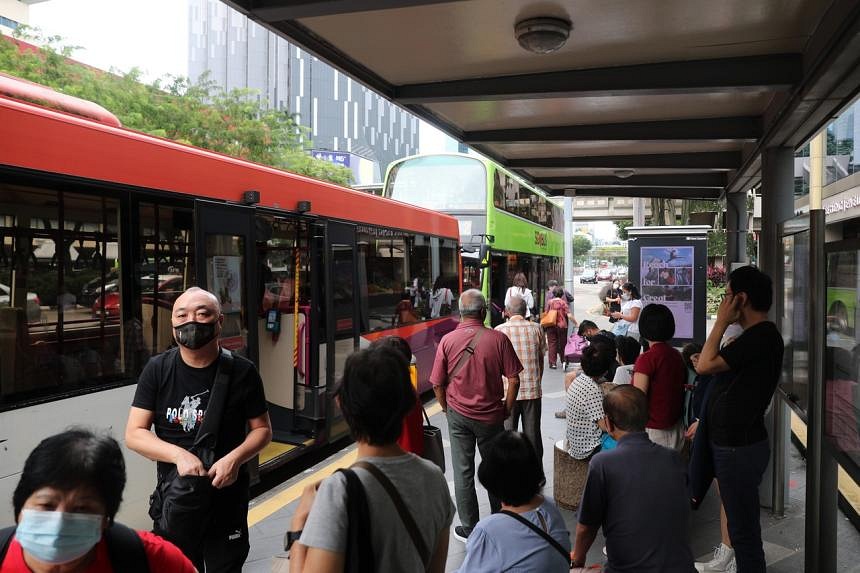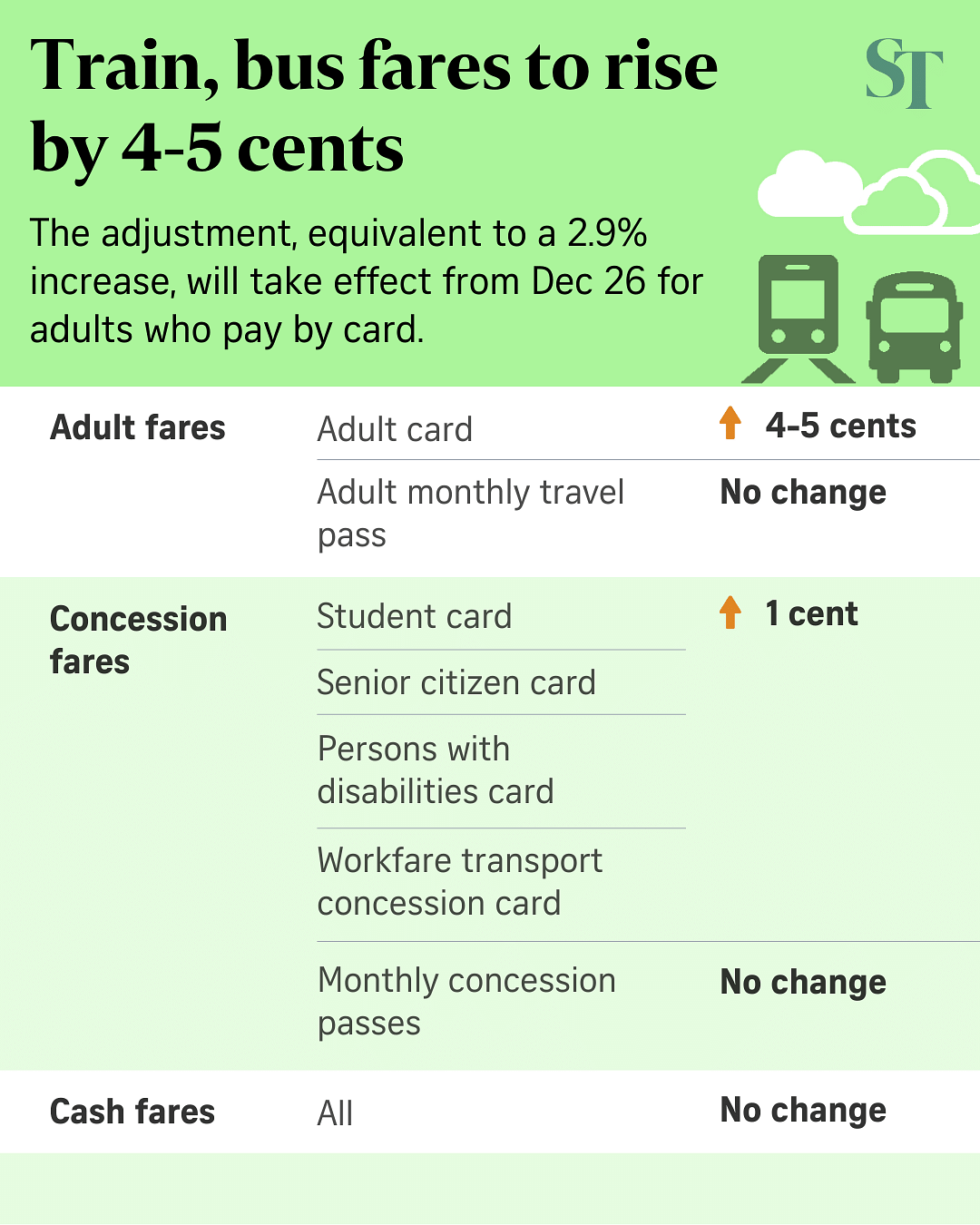600,000 public transport vouchers available from Dec 28 to help with fare hike

SINGAPORE - A total of 600,000 public transport vouchers worth $30 each will be available for lower- to lower-middle-income households from Dec 28.
The vouchers are meant to help these households cope with the 2.9 per cent fare increase that will kick in from Dec 26, said the Ministry of Transport (MOT) on Wednesday. Adults will pay 4 to 5 cents more per trip.
The vouchers can be used to top up fare cards or buy monthly concession passes.
Households with monthly income per person of not more than $1,600 will qualify for the vouchers.
By end-December, letters will be sent to households who had received similar vouchers in 2021 and continue to be eligible for the 2022 exercise.
Those who are eligible but did not receive the notification letters can apply for vouchers online or at their local community centres or community clubs from early 2023.
The number and value of vouchers for 2022 are identical to that in 2021.
Giving an update on the distribution of vouchers for 2021, MOT said around 370,000 vouchers have been disbursed as at Sept 30.
About 90 per cent of those have been redeemed, which translates to nearly $10 million being utilised to top up fare cards or buy monthly concession passes.
Rail operators are required to contribute to the Public Transport Fund which is used to finance the vouchers.
The 2.9 per cent fare hike translates to an increase in fare revenue of about $50.3 million a year, said the Public Transport Council (PTC). SMRT Trains' annual revenue will go up by $15.4 million, while SBS Transit's will rise by $7.4 million.
SMRT Trains will contribute 20 per cent of its additional fare revenue, or $3.07 million, to the fund in 2022 - up from $2 million in 2021.
For SBS Transit, the amount is $370,000 - 5 per cent of the revenue increase - up from $230,000 the year before.
Both operators had applied for the maximum fare adjustment of 13.5 per cent, which is the highest on record.

An SBS Transit spokesman said costs have been driven up by high energy prices and rising manpower costs.
Mr Lam Sheau Kai, president of SMRT Trains, said the shortfall in ridership continues to put pressure on the financial sustainability of train operators.
As at September, rail ridership was at about 80 per cent of pre-pandemic levels.
In its latest financial year, SMRT Trains recorded an operating profit of $16 million after taking into account government support for Covid-19, said the PTC.
SBS Transit’s rail segment reported a loss of tens of millions of dollars, even with government support.
Ms Evelyn Quek, 42, a senior manager in healthcare, said the latest fare increase is still manageable. But the mother of two school-going children noted that it is yet another expense that is rising this year.
She has been relying on public transport to take her daughters for activities, as private-hire car and taxi fares have gone up significantly in recent months.
Communications manager Ng Chin Chye, 41, uses the MRT to get to work in Middle Road.
He does not track how much he spends on transport very closely but expects to top up his stored value card more often in future with the fare hike.
“We really don’t have a choice, right?” he said. “At least buses and trains are still a lot cheaper than taking a private-hire car.”


No comments
Share your thoughts! Tell us your name and class for a gift (: